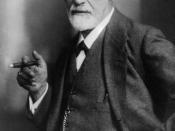In its inexorable impulse to assert its supremacy, the Male Ego in both Tess and Thalamurakal invents strange logic and drags the hapless female along its aberrant paths. It is curious to observe that both Angel and Chamiarappan insists on interpreting their female counterparts according to their own strange and devious psychical make-up. In both cases the individuality of the female or her deepest desires are seldom paid attention.
Michael Millgate makes the following observation:
" Like his successor, Jude, Angel is a more "modern" character than other Hardy men; for he has ambiguous and contradictory motives--some overt, others so hidden under layers of ideas that they can come out only at night. His wavering, his rationalisations, his sophistries, his naive self-deceptions, and his neurotic self-torments ally him to such figures as Stephen Dedalus and Quentin Compson rather than to the typical Victorian hero. Both the sleepwalking and the intensity with which he reacts to Tess's confession may well indicate a hidden sense of sexual guilt, as the emphasis on feminine "purity" usually indicates an obsession with sexuality as something to be feared."
7
Angel in spite of the strong protests from Tess insists on projecting an idealised image of her, which is doomed to bring disillusionment and frustration, hit against the rock of stark realism. He goes onto address her by classical names like Artemis and
Demeter, whose meaning she scarcely understands. The Jungian theory may help to understand this behavioural pattern of Angel:
" A Collective image of woman exists in a man's unconscious, with the help of which he apprehends the nature of woman." 8
According to Jung, so long as men are unconscious of their "anima", they project this image onto various women they were attracted. It is likely to produce disastrous results since they...


